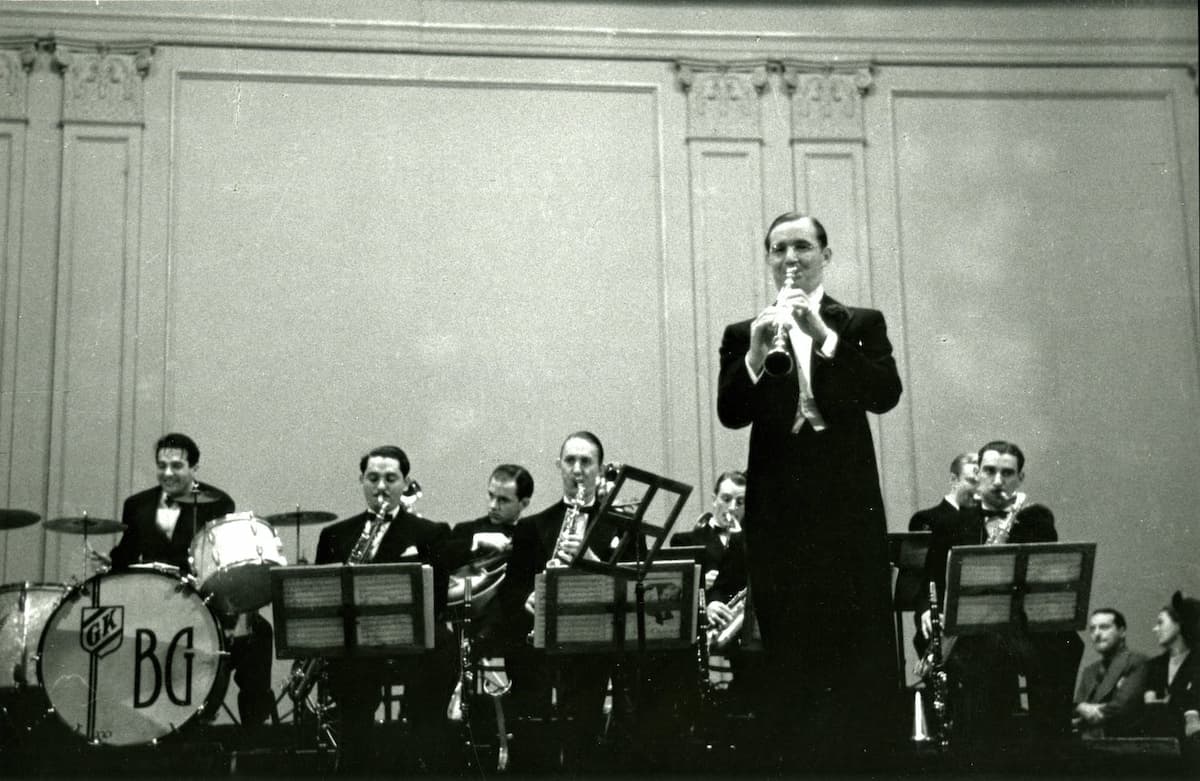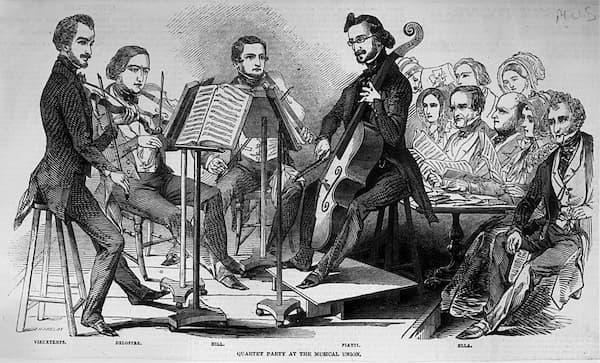To me, a good concert experience = a good performance + organiser + audience + community.

Berlioz’ Les Troyens at the BBC Proms 2023 © Andy Paradise
A good concert experience is the product of several key components: performance, organiser, audience, and community. Each element plays a pivotal role in shaping how we perceive and experience live music. Here’s a closer look at what makes a concert experience truly memorable.
1. Performance

Benny Goodman’s Carnegie Hall Concert in 1938
It goes without saying that an exceptional performance is essential for a great concert experience, but it requires more than just a musician with technical versatility and expressive depth. It also requires a thoughtfully curated programme that speaks something – whether theme-based, internally linked, or contrasting – and highlights the performer’s artistic strengths.
To stop stating the obvious, I’ll dedicate the remaining length to the other components of a good concert experience.
2. Organiser
Equally important is an organiser that has a genuine love and respect for music beyond financial considerations. This dedication is self-evident in the curation of the concert – from the choice of artists, programming, and marketing, to related events, and the actual execution of the concert.
While it is exciting to see big names visiting our hometown, I particularly appreciate organisers who take risks by inviting lesser-known but equally wonderful musicians who have something unique to say. Similarly, the programme is often a mutual decision between the artist and organiser, and it takes courage to include an unconventional repertoire.
As far as marketing and concert-related events are concerned, it would be pretentious to deny or neglect the importance of the box office, but we should also aim to help the music and musicians reach a wider audience and on a deeper level. When it comes to pre-concert engagement, there are different ways to engage the audience beyond traditional, didactic lectures. Social media posts featuring music excerpts, interviews, introductions to the programme, or intellectually stimulating dialogues with artists can all help build anticipation and foster appreciation for the music.
Frank Dupree on Nikolai Kapustin Piano Concerto No. 4
Music in Words with Paul Lewis: Performing Schubert
As for the actual concert itself – call me a nit-picker – everything matters, from the ushers’ professionalism and the venue (acoustics, seating), to seemingly small details like the programme notes and when latecomers are admitted. For instance, I will never forget a concert where latecomers were allowed to enter after the first movement of a symphony – it’s just unforgivable. Programme notes, too, should be at least factually accurate; even better, they should enrich and educate, i.e. not merely “the piece begins in B major, and then modulates to E major…”, which means little, if anything, to most listeners.
3. Audience

1846 concert showing audience with program notes © Wikipedia
While I’m against the idea that concerts should be treated as sacrosanct occasions or that everybody should wear a tuxedo to a concert, each and every concert experience should be treasured. The Japanese idiom ichi-go ichi-e is roughly translated as “one time, one meeting” or “for this time only”. It is a concept of cherishing the unrepeatable and ephemeral nature of a moment. The same applies to concerts, which is, to me, the essence of music-making.
By treasuring the experience, I mean being attentive, respectful and immersed in it. While incessant coughing, chitchatting, or dropping items like phones or booklets is obviously irritating, it’s probably even more annoying when a few people feel pathologically compelled to applaud as the last note is still reverberating in the hall.
The last 5 minutes of Abbado’s Mahler 9th at 2009 Lucerne Festival
4. Community
A concert experience shouldn’t end when the final note fades. A concert, whether good or bad, should spark some sort of discussion afterwards, such as through social media posts, formal reviews, radio podcasts, or in-person conversations.
While we are entitled to our opinions, the aim is not to validate or to refute them – rather, it creates a space to process emotions, gain new insights, and (re)create a communal joy. A vibrant musical community has the power to transform a concert from an isolated event into a shared cultural experience, enriching the concert experience per se.
Now, go enjoy a concert and make some noise – but only after the last note has faded.
For more of the best in classical music, sign up for our E-Newsletter



